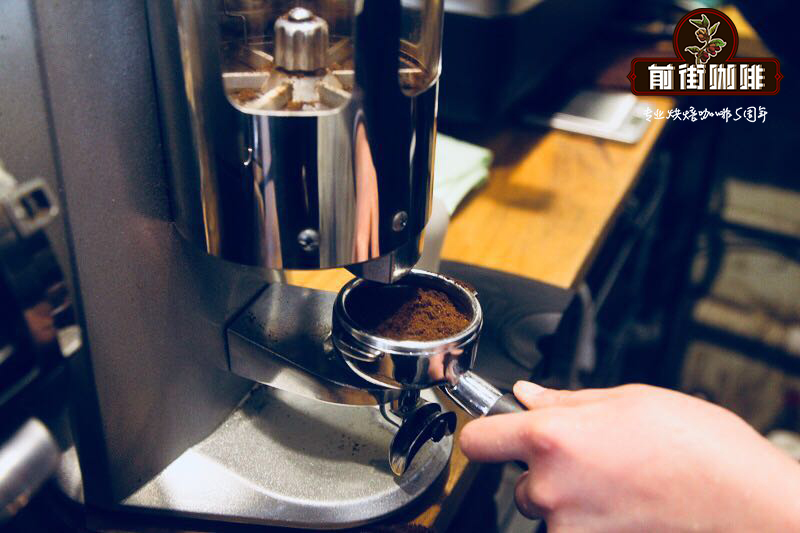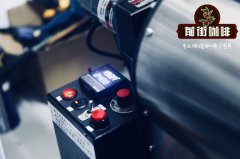What are the factors that affect espresso? How would you like your espresso?

Professional coffee knowledge exchange more coffee bean information please follow the coffee workshop (Wechat official account cafe_style)
The taste of espresso mainly depends on coffee concentration, so coffee concentration occupies a very important position. The taste of coffee is affected by the amount of powder, degree of grinding, amount of extraction, extraction time and temperature.
Powder quantity: according to the characteristics of coffee beans, choose the appropriate amount of powder. For coffee beans used for the first time, it is recommended to use 20 grams of powder. The amount of powder is one of the two major variables in the taste of coffee. If the amount of powder changes, the water setting of the coffee machine should be adjusted accordingly, because the extraction ratio needs to be taken into account. As above, for coffee beans used for the first time, the extraction ratio is 1:2, that is to say, 20 grams of powder extract 40 milliliters of coffee concentrate.
Degree of grinding: this is also one of the two major variables, and we baristas need to observe the state of the coffee when it is concentrated, and if there is any change, the degree of grinding needs to be adjusted immediately. To put it bluntly, the degree of grinding is the thickness of the powder, and it is conceivable: "if the particle of the powder is larger, the gap in the pressed powder is still larger after pressing the powder, so the water flowing from the head is easier to pass through the pressed powder. The final result is that the coffee is concentrated at a fast flow rate, with high acidity and thin consistency. On the contrary, if the particles of the powder are fine, the gap in pressed powder is smaller after pressing powder, so it is more difficult for the water from the head to pass through pressed powder, resulting in slow coffee concentration, low acidity and thick thickness.
Amount of extraction: it is a dependent variable and changes as the amount of powder changes. for a kind of coffee beans, the amount of powder and extraction does not need to be changed frequently, unless the beans are mixed or the barista wants to adjust the flavor of the extraction.
Extraction time: in the production of Italian coffee, the extraction time is completely a dependent variable, different from hand-brewed coffee, the extraction time can be determined according to the grinding degree or water injection time. Here, the extraction time depends entirely on the degree of grinding.
Temperature: the water temperature of the coffee machine boiler also has a certain effect on coffee, which can be summarized as follows: the higher the temperature, the lower the acidity, the lower the temperature, the higher the acidity, so we should analyze the beans we use and adjust the water temperature of the coffee machine. the general temperature is between 92 and 97 degrees.
When we make a cup of espresso, we judge whether the coffee is balanced in terms of sweetness, acidity and bitterness, and no one will overwhelm the other. A cup of espresso with good extraction should be balanced in all aspects and have different flavor levels. Not only taste, we can also judge from the taste of a cup, consistency is appropriate, and must not have astringent taste, otherwise it will affect the whole taste. For experienced baristas and coffee lovers, coffee can be distinguished by a cup of espresso, so we need to cultivate our own taste buds and use standards and norms to taste coffee.
Important Notice :
前街咖啡 FrontStreet Coffee has moved to new addredd:
FrontStreet Coffee Address: 315,Donghua East Road,GuangZhou
Tel:020 38364473
- Prev

The principle of the coffee roaster, what is the basic structure of the coffee roaster?
Professional coffee knowledge exchange more coffee bean information Please follow the coffee workshop (Wechat official account cafe_style) the purpose of coffee roasting should be to find out the coffee beans treated in different regions, belonging to its most appropriate [roasting degree] although roasting is the process of heating and scorching raw coffee beans, but the real purpose should be to beat according to the different characteristics of raw beans.
- Next

Why is Nongfu Mountain Spring a little sweet? The effect of good water quality on coffee brewing?
Professional coffee knowledge exchange more coffee bean information please follow the coffee workshop (Wechat official account cafe_style) water, there are tap water, sea water, lake water, as well as a variety of mineral water, pure water that so many kinds of water, what kind of water is suitable for brewing coffee and tea? What effect does it have on coffee? How big is the impact? Let's start with a little sweetness and spread it widely.
Related
- Beginners will see the "Coffee pull flower" guide!
- What is the difference between ice blog purified milk and ordinary milk coffee?
- Why is the Philippines the largest producer of crops in Liberia?
- For coffee extraction, should the fine powder be retained?
- How does extracted espresso fill pressed powder? How much strength does it take to press the powder?
- How to make jasmine cold extract coffee? Is the jasmine + latte good?
- Will this little toy really make the coffee taste better? How does Lily Drip affect coffee extraction?
- Will the action of slapping the filter cup also affect coffee extraction?
- What's the difference between powder-to-water ratio and powder-to-liquid ratio?
- What is the Ethiopian local species? What does it have to do with Heirloom native species?

